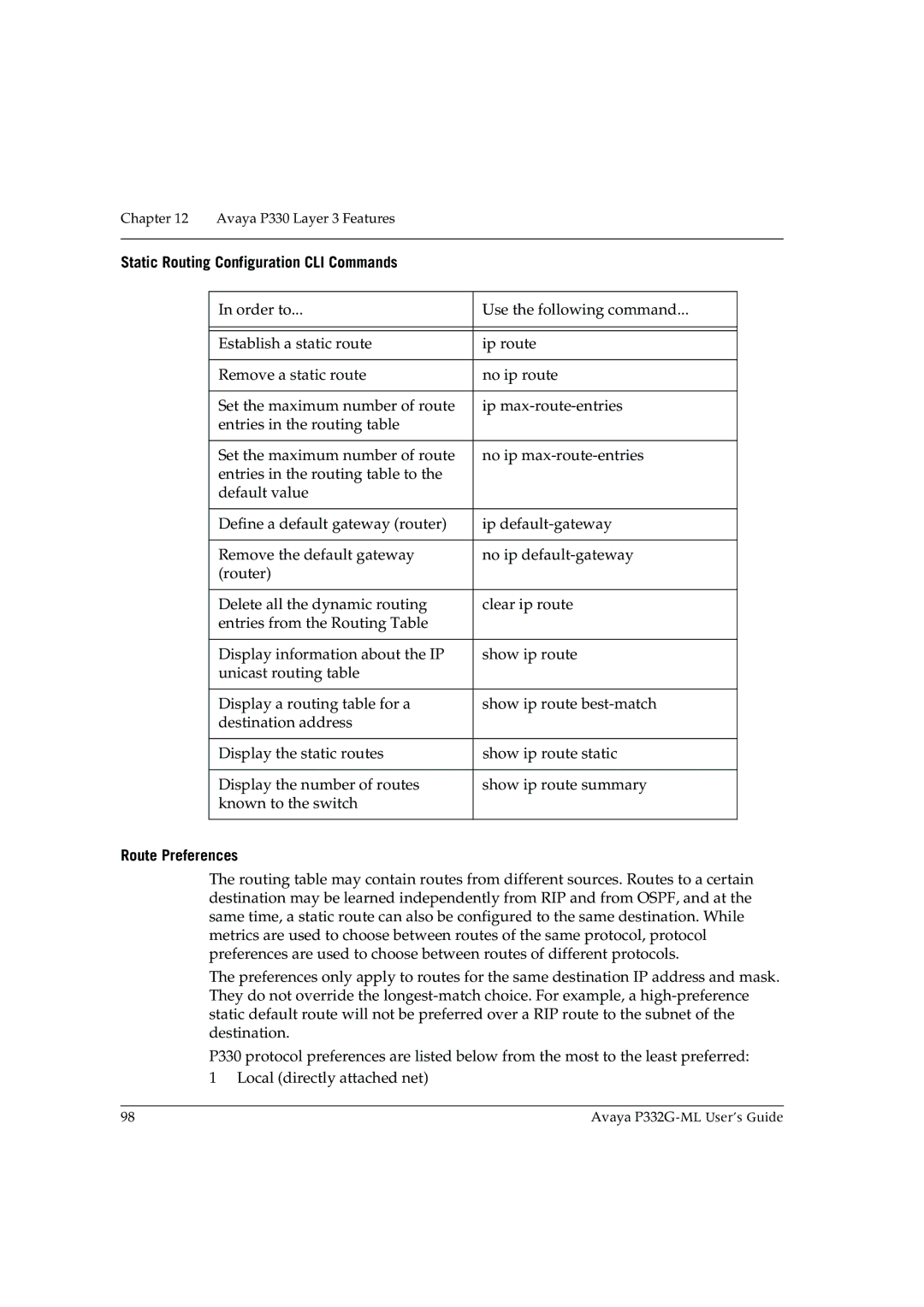
Chapter 12 Avaya P330 Layer 3 Features
Static Routing Configuration CLI Commands
In order to... | Use the following command... |
|
|
|
|
Establish a static route | ip route |
|
|
Remove a static route | no ip route |
|
|
Set the maximum number of route | ip |
entries in the routing table |
|
|
|
Set the maximum number of route | no ip |
entries in the routing table to the |
|
default value |
|
|
|
Define a default gateway (router) | ip |
|
|
Remove the default gateway | no ip |
(router) |
|
|
|
Delete all the dynamic routing | clear ip route |
entries from the Routing Table |
|
|
|
Display information about the IP | show ip route |
unicast routing table |
|
|
|
Display a routing table for a | show ip route |
destination address |
|
|
|
Display the static routes | show ip route static |
|
|
Display the number of routes | show ip route summary |
known to the switch |
|
|
|
Route Preferences
The routing table may contain routes from different sources. Routes to a certain destination may be learned independently from RIP and from OSPF, and at the same time, a static route can also be configured to the same destination. While metrics are used to choose between routes of the same protocol, protocol preferences are used to choose between routes of different protocols.
The preferences only apply to routes for the same destination IP address and mask. They do not override the
P330 protocol preferences are listed below from the most to the least preferred: 1 Local (directly attached net)
98 | Avaya |
